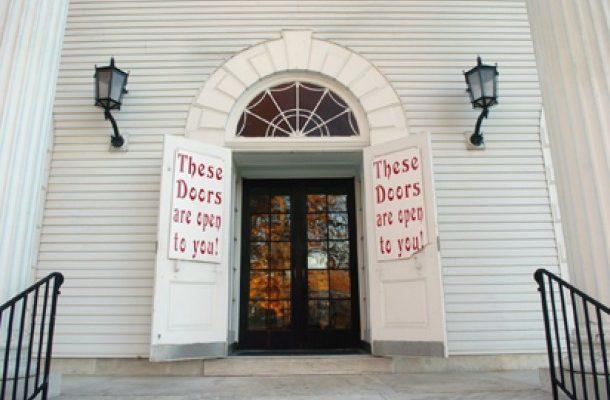Radical welcome is first and foremost a spiritual practice. It combines the Christian ministry of welcome and hospitality with a faithful commitment to doing the theological, spiritual, and systematic work to eliminate historic, systemic barriers that deny the genuine embrace of groups often oppressed and marginalized in mainline churches (especially young people, the poor, poor seniors, varying sexual orientations, people of color, people with disabilities).
As you practice radical welcome, you join Jesus in stretching your arms and embracing The Other. You share the gifts of your tradition and culture, even as you allow your heart and your congregation’s life – its ministries, its identity, its worship, its relationships, its leadership – to be transformed by The Other’s presence, gifts and power among you.
Radically welcoming churches understand that each group brings gifts and perspectives that help the whole congregation to fulfill God’s dream and purpose. These churches seek to embrace each group’s voice, presence and power, with a special commitment to embracing groups who have been defined as The Other.
The Other is any group that is likely (or would reasonably expect) to experience patterns of historic, systemic oppression and marginalization in your congregation and/or denomination, especially given your church’s domnant race, culture, language, generation, socioeconomic class, education level, sexual orientation and physical ability.
In your church, which cultural, gender, generational, class groups hold power – that is, the ability to have authority or influence, and to have their story, culture, and voice shape the congregation? These groups are your Power Center. Which groups do not hold this authority? Whose story does not as significantly shape the history, culture, worship and identity of the church? These groups are The Other for you.
The emergent/emerging church movement is one place where you can see people living out radical welcome. Why? They are embracing both their local context and ancient traditions. These often young leaders scout in the culture around them: in the neighborhood, on campus, at bodegas, in clubs, via online social networks. They see where and how God’s spirit is already active, where people are finding meaning and holiness, and then enter relationships with this marginalized wisdom. Then they remix the church’s worship, architecture, teaching, leadership, identity, community, and ministries.
Stephanie Spellers is lead priest at The Crossing, the emergent community based at the Cathedral of St. Paul in Boston. An acclaimed preacher, she is the author of Radical Welcome: Embracing God, the Other and the Spirit of Transformation and co-editor of Ancient Faith, Future Mission: Fresh Expressions in the Sacramental Tradition.

